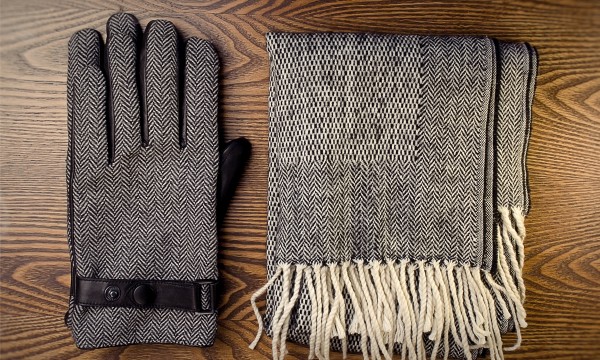Whether it's shovelling the driveway or waiting for a bus, icy fingers make winter miserable. To keep your hands toasty and dry, here's what should you know when purchasing winter gloves.
- Browse Categories
- All Tips
-
Home & Garden
- All
- Appliances
- Bathroom
- Cleaning
- Crafts
- Decorating
- Electrical
- Flooring
- Furniture
- Garage Door
- Gardening
- Green Living
- Heating
- Home Alarm Systems
- Home Maintenance
- Home Remedies
- Home Security
- Home Staging
- House Sitting
- Junk Removal
- Kitchen
- Lawn Care
- Lock Systems
- Moving
- Outdoor Living
- Pest Control
- Plumbing
- Renovation
- Roofing
- Snow Removal
- Storage
- Tools
- Tree Service
- Health
- Family
- Travel
- Auto
- More Tips

What you should know when purchasing winter gloves
January 13, 2015

A glove for every occasion
Just as you wouldn't wear pumps to go hiking, there are different kinds of gloves suited for different activities.
Sports winter gloves: Gloves made specifically for winter sports (like snowmobile gloves or ski gloves) provide warmth, protection, comfort and dexterity.
- They tend to be insulated, waterproof, windproof and have a moisture-wicking liner. What's more, they are designed to give you freedom of movement and a good grip on your sports equipment.
Casual winter gloves: Casual gloves keep you warm and offer more moderate protection from the elements. They typically focus on fashion and come in a range of different styles to match your outerwear.
- Casual gloves generally fit comfortably under the sleeves of your winter jacket or sweater.
Dress gloves: Dressy winter gloves, like leather gloves, make a great winter wardrobe accessory for more formal occasions.
- While dress gloves offer some warmth and protection, they are not designed for prolonged activity in the extreme cold or snow.
Features to consider
Glove material: Gloves come in wide range of materials.
- Leather gloves look great and can last for years.
- Nylon and synthetic materials are often used in sports gloves.
- Cotton, fleece and knitted gloves are breathable but offer moderate protection.
Weather resistance: If you plan to be very active outdoors during the winter, look for gloves that offer waterproof, windproof and other weatherproof protection.
Insulation: Insulated gloves keep you really warm, but can cause your hands to perspire.
- Look for insulated gloves that offer breathable comfort, or choose a non-insulated glove for warmer winter days.
Moisture wicking: Some gloves come with moisture-wicking liners pull perspiration away from your skin.
Flexibility: It's important to be able to comfortably move your fingers, especially during outdoor sporting activities.
- A good ski glove will be durable without restricting your movement.
Cuff length: The length of your glove's cuffs has a huge impact on how warm your hands will be and how much snow gets into your sleeves when skiing or snowboarding.
- Longer cuffs are better for extreme sports, while shorter cuffs are better for everyday use.
Patches: Consider gloves with reinforced knuckle and palm patches — areas that typically receive the most wear and tear.
- Make sure they don't make the glove too thick to be practical.
The right pair
When the cold of winter comes, you'll definitely be glad you've got the right pair of gloves.
Since gloves come down to personal preference, consider how thick a glove you need to stay warm without overheating. With a little patience, you'll soon find the right gloves to keep you comfortable, warm and protected during all your outdoor activities.






